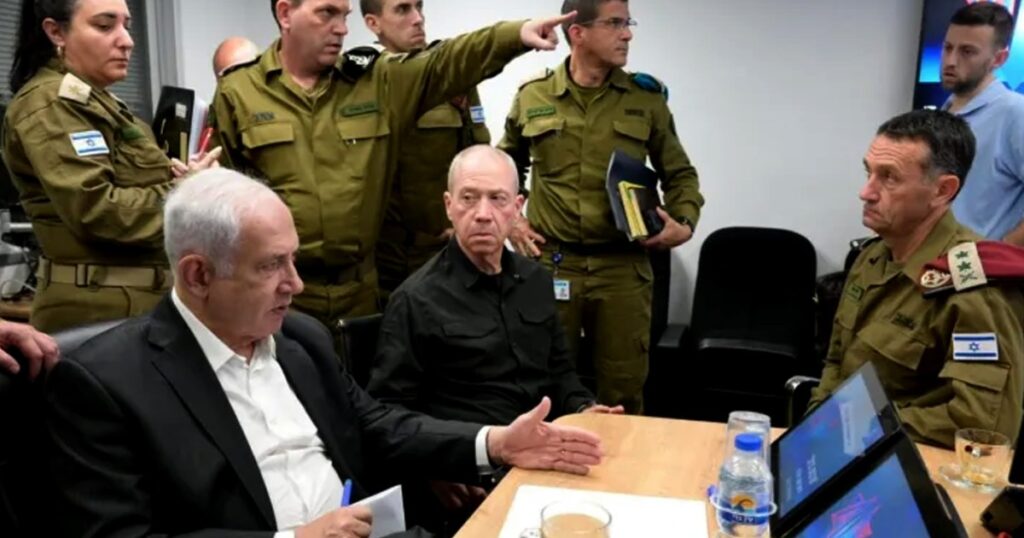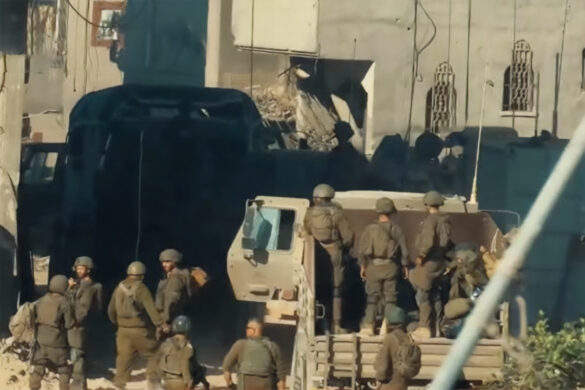In an escalation of the dispute between the political and military leadership in Israel, Prime Minister Benjamin Netanyahu directed his criticism at the army, implicitly accusing it – during the weekly government session – of hijacking the state’s decision, saying that “Israel is a state that has an army, not an army that has a state.”
The dispute between the two leaderships erupted the day after one of the heaviest days for the occupation army in terms of human losses during its current war on the Gaza Strip, and after it acknowledged the killing of 11 individuals, including a soldier and an officer, as a result of the fighting in the Strip, and the impossibility of returning all the detainees in Gaza similar to the Nuseirat operation.
According to the head of the Department of Political Science at Hebron University, Bilal Al-Shobaki, the relationship between the political and military levels is in a state of confusion in light of the absence of military coverage from the Netanyahu government after the resignation of Ministers Benny Gantz and Gadi Eisenkot from the emergency government.
Writer and political researcher Sari Orabi says that the differences between the political and military levels are not new in Israel, but their intensity has increased with the prolonged war in the Gaza Strip and the failure to achieve the goals that were set.
Orabi pointed out that there is a state of frustration and despair among Israelis at all levels because of this failure.
Orabi believes that the Palestinian resistance, with its performance and steadfastness, has deepened the dispute between the Israelis, suggesting that the differences between the political and military levels will be reflected at the negotiating table between the resistance and the occupation.
He pointed out that Netanyahu’s attack on the army’s military leadership came after it announced a “tactical truce” in the city of Rafah “without coordination with him,” according to him. He stressed that this truce was “unacceptable” and that he “heard about it through the media.”
Regarding the nature of the differences between the Netanyahu government and the army, the military and strategic expert, Major General Fayez Al-Duwairi, said that they revolve around positions and visions, whether in managing the battle or regarding the day after the war.
Al-Duwairi pointed to the role of the Palestinian resistance in fueling disputes between the Israelis, and said that while the occupation army destroyed Gaza and all the necessities of life, the resistance remained and its operations were escalating in Jabalia and Beit Hanoun in the northern Gaza Strip and in Rafah in the south.
Regarding the impact of Israeli differences on the war in Gaza, Al-Duwairi explained that the Israeli army has become aware that there are no achievable goals in the Gaza war.
At the same point, the head of the Political Science Department at Hebron University points out that Gantz and Eisenkot may now be leading the Israeli street against the Netanyahu government, especially in light of the doubts of former prominent leaders in the army about the feasibility of continuing the war.
Israeli Army Reserve Major General Yitzhak Brick said, “The war in Gaza has lost its purpose, and is continuing only for the benefit of Prime Minister Netanyahu.”




